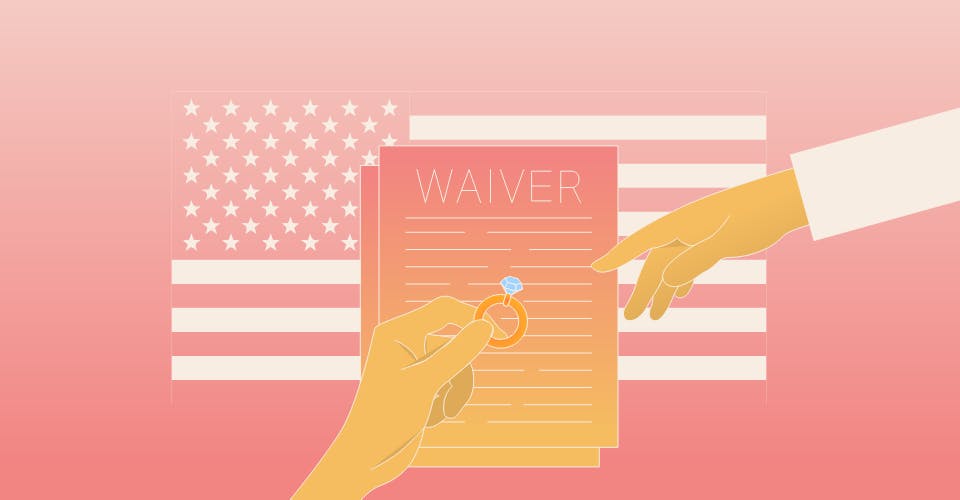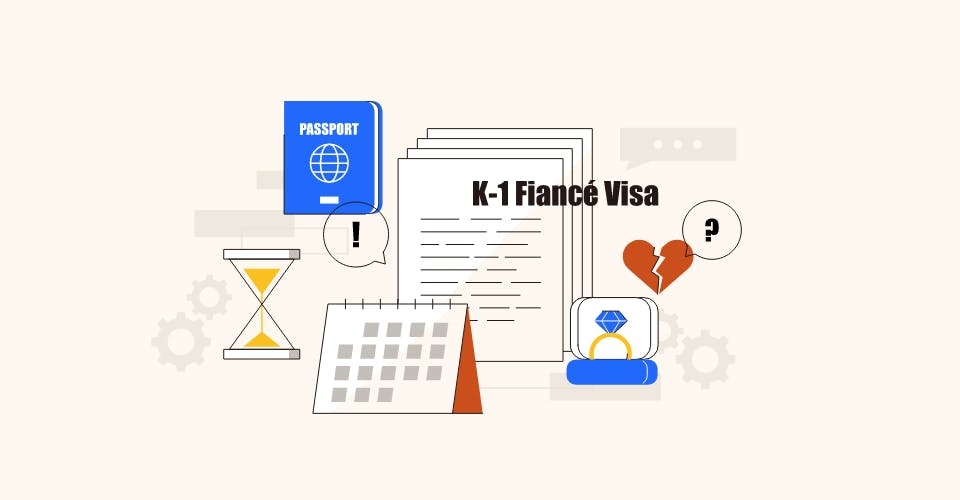Visa2us.com covers the fiancé visa application. For this application, the first mandatory part is for the U.S. citizen to petition on behalf of their foreign fiancé to come to the United States. This petition establishes a legitimate relationship for the couple with the USCIS, and also has the U.S. citizen sign their name stating that their foreign fiancé has an intent to marry when they arrive in the United States.
In addition, there are various conditions that need to be met in order for this petition to be approved:
- Both the U.S. citizen and the foreign fiancé need to be admissible to the United States (up to date on vaccinations, no criminal record, etc)
- Both the U.S. citizen spouse and the foreign fiancé need to attach hand-written letters stating their intent to marry during the 90-day K-1 period
- The I-129F petitioner needs to affirm that the couple has met, for some period of time, in the immediate 2 year period before the petition is filed.
Sometimes, not all of these conditions are met, and a fiancé waiver is needed. Waivers for this type of visa are generally very difficult to get, but in some special circumstances, waivers can be granted.
Waiver Resulting in Extreme Hardship to the Petitioner
On the I-129F, you will have to answer in Part 2 whether or not you have met your foreign fiancé in the immediate two-year period prior to the filing. If you have not, and because this is a normal requirement, you need to provide a written explanation in the form as to why this is the case.
This part can be tricky because the USCIS usually only accepts and grants waivers for applicants in this situation if they know that meeting would cause extreme hardship to the petitioner/beneficiary. The problem is that the bar for proving extreme hardship is very high. Usually one of the only ways for this to happen is if there is legitimate evidence that the beneficiaries foreign culture or social practice demands that the bride and groom only meet in person on their wedding day.
Waiver due to multiple petitions filed by U.S. Citizen
The second instance where a waiver is needed for the K-1 fiancé application is when the U.S. citizen has filed multiple I-129Fs. This could be in the event that the U.S. citizen had filed a petition for a fiancé who passed away before consular processing had begun or in the case that a U.S. citizen had a foreign fiancé come to the United States, but never ended up getting married.
In order to be granted a waiver for multiple filings, the U.S. citizen needs to clearly bring forth evidence, along with marking the correct box in Part 3 of the I-129 per question 5 (there are choices to select if the petitioner has been a multiple filer, and has any criminal convictions as well).
The evidence that the petitioner should attach if they want to be granted a waiver includes the following:
- Evidence of a deceased fiancé
- A complete description/letter of what happened with a previous fiancé who travelled to the U.S. to marry, but did not marry, and where the former fiancé lives now (i.e. in the U.S. or abroad).
Note: A waiver might not be granted if the former fiancé who the petitioner intended to marry is now living in the U.S. illegally.














